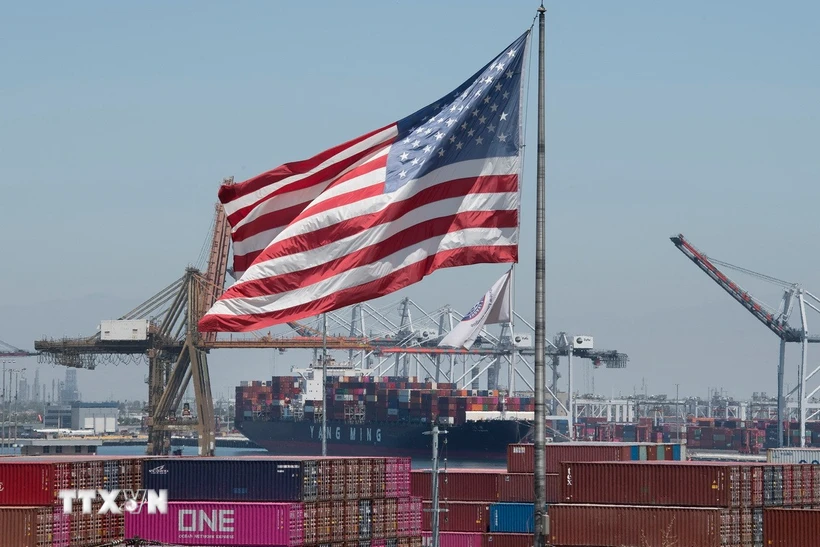According to current regulations, online sellers with annual revenue of 100 million or more will have to pay a business license fee of 300,000 VND - 1,000,000 VND.
If the revenue calculated in the calendar year is from 100 million or more, online sellers must pay personal income tax and value added tax.
In case an online business household or individual does not pay tax or pays tax late, they will be handled according to the provisions of law.
Recently, the General Department of Taxation has sent a document to local tax departments, requesting a review of all organizations and individuals who livestream sales on platforms such as Youtube, Facebook, Tiktok... Thereby, the tax authority will inspect and check at the taxpayer's headquarters in cases showing signs of risk.

Currently, for many people, online sales are the main source of income, however, not everyone understands their tax obligations to comply. Currently, the tax industry is prioritizing increased propaganda and guidance for taxpayers to voluntarily declare and properly and fully fulfill their obligations to the state budget.
Tax consulting units say that in reality, when dealing with many individuals or online businesses, most mistakes are due to not understanding how to declare and pay taxes.
Ms. Nguyen Thi Lan Anh, Director of the Department of Small and Medium Enterprises and Individual Business Households, General Department of Taxation, shared about tax regulations for individuals selling online.
Ms. Nguyen Thi Lan Anh said that in order to provide maximum support to organizations and individuals doing e-commerce business, in recent times, the tax sector has approached in the direction of implementing propaganda programs, providing deep and wide support to people and businesses in complying with tax laws. The tax authority always prioritizes maximum support, creating favorable conditions for taxpayers to voluntarily declare and pay taxes according to regulations.
In case the taxpayer fails to declare and pay taxes or fails to fully declare the amount of tax payable as prescribed, depending on the severity of the taxpayer's violation, the tax authority will handle it in accordance with the provisions of the Law on Tax Administration and Decree No. 125 dated October 19, 2020 of the Government regulating administrative sanctions for violations of tax and invoices. If the taxpayer commits acts of tax fraud or evasion, the tax authority will transfer the case to the competent authority for handling in accordance with the provisions of specialized laws.
There are now very clear regulations on penalties for tax fraud and evasion. According to the Law on Tax Administration, e-commerce platforms must provide information about traders on the platform to tax authorities.
Ms. Lan Anh said that, based on the provisions of Clause 7, Article 1 of Decree No. 91 dated October 30, 2022 of the Government, the organization that owns the e-commerce platform is responsible for providing the tax authority with information of traders, organizations, and individuals doing business on the e-commerce trading platform, including: seller's name, tax code or personal identification number or identity card or citizen identification card or passport, address, phone number; sales revenue through the online ordering function of the platform.
The provision of information is done periodically every quarter, no later than the last day of the first month of the following quarter, electronically, through the Electronic Information Portal of the General Department of Taxation. Such regulations have created more favorable conditions for exchanges in providing information to tax authorities than previous regulations.
Quoc Tuan
Source: https://vietnamnet.vn/quy-dinh-ve-thue-voi-nguoi-ban-hang-online-2328126.html





![[Photo] "Beauties" participate in the parade rehearsal at Bien Hoa airport](https://vstatic.vietnam.vn/vietnam/resource/IMAGE/2025/4/11/155502af3384431e918de0e2e585d13a)

![[Photo] Looking back at the impressive moments of the Vietnamese rescue team in Myanmar](https://vstatic.vietnam.vn/vietnam/resource/IMAGE/2025/4/11/5623ca902a934e19b604c718265249d0)

























![[Photo] Summary of parade practice in preparation for the April 30th celebration](https://vstatic.vietnam.vn/vietnam/resource/IMAGE/2025/4/11/78cfee0f2cc045b387ff1a4362b5950f)

























































Comment (0)